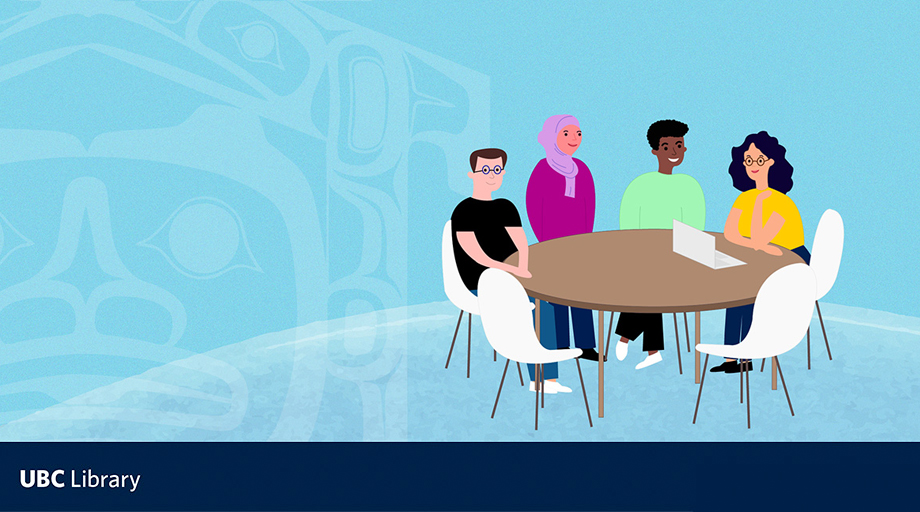
Imagine that you’re working at a library reference desk. A student hesitantly approaches you with a question. They are a nursing student who will be starting a community care plan assignment in Port Alberni. They need to find research on the local First Nation (Tseshaht), but don’t know what search terms to use. What would you tell them?
Another student is working on a paper for a 100-level engineering class and wants to include Indigenous perspectives into their sources. Where should they start?
These are two practice scenarios from Basic Indigenous Reference Training, a new type of workshop recently developed by UBC Library to address the growing demand from all disciplines to learn more about Indigenous topics in coursework and research.
X̱wi7x̱wa Library is a UBC Library branch, a centre for Indigenous scholarship and a leader in Indigenous academic librarianship. As the only Indigenous branch of an academic library in Canada, X̱wi7x̱wa Library is also uniquely placed when it comes to fielding questions about Indigenous topics.
Until recently, all reference questions about Indigenous materials or topics that would come into UBC Library branches would get referred to the small, expert team of librarians and staff at X̱wi7x̱wa Library.
“There has been a large push for any Indigenous research questions to always get referred to Xwi7xwa Library,” says Karleen Delaurier-Lyle, Information Services Librarian at Xwi7xwa Library. Over the years, the demand for Indigenous reference has grown considerably due to efforts across campus to Indigenize the curriculum at UBC—one of the stated goals in UBC’s Indigenous Strategic Plan—and to engage with Indigenous perspectives and Ways of Knowing.
“As you can imagine, folks are looking to participate in Truth and Reconciliation and the Indigenous Strategic Plan initiative. That has increased the number of people with questions,” says Delaurier-Lyle.
To address the growing demand and expand capacity for Indigenous reference help across the UBC Library system, UBC Library created a working group in March 2023, led by Alex Kuskowski, Learning Services Librarian at the Chapman Learning Commons in the Irving K. Barber Learning Centre. The group met regularly to discuss ways to provide training to UBC Library librarians and reference staff on ways to approach answering basic Indigenous reference questions. Three live training sessions were offered in the summer, attended by nearly 50 UBC Library employees, for whom this work directly intersected with their job duties.
“In order for UBC Library to deliver on commitments to Truth and Reconciliation and the Indigenous Strategic Plan, there is a need for increased capacity to do this kind of work throughout the system,” says Barbara Sobol, Technology Management Librarian at UBC Okanagan Library. “And that responsibility does not only rest with either Xwi7xwa Library or with our Indigenous colleagues who might be elsewhere within the system. It’s a broad, sweeping responsibility across the system. This reference training was designed to help build capacity for people providing various types of reference services, regardless of subject matter and across different roles.”
To read the full story, please visit the UBC Library website.
Through Strategy 17: Indigenous Engagement, UBC is committed to supporting the objectives and actions of the Indigenous Strategic Plan.